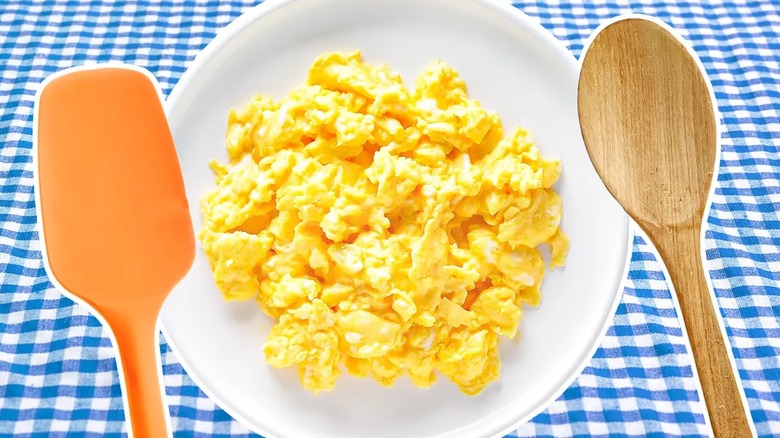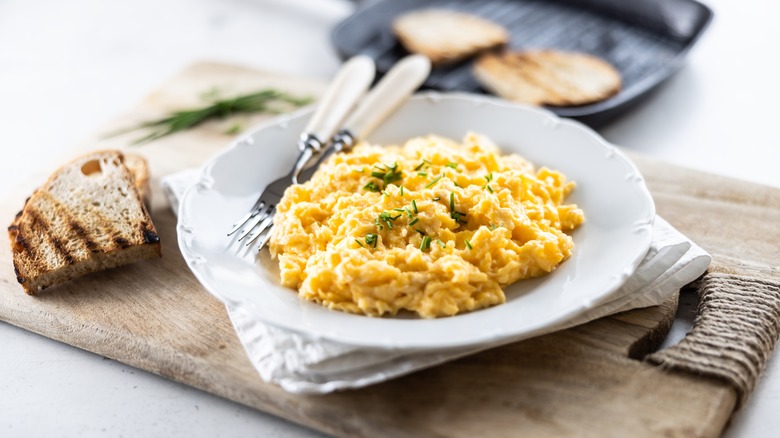Wooden Spoon Vs Silicone Spatula: Which Makes Fluffier Scrambled Eggs?
When it comes to savory breakfast dishes, it's not hard to argue that scrambled eggs are one of the best. They're soft, savory, delicious, and a great way to get some morning protein into your system. This is why it's certainly not a bad idea to master the art of making scrambled eggs. One major detail to consider? Which utensil you use to make them.
Two common utensils that you may reach for when it comes time to make your scrambled eggs are the wooden spoon and the silicone spatula — but which one is better? The answer is the silicone spatula — by a long shot. The reason is because the silicone spatula is both thinner and more malleable, making it the perfect utensil for reaching into the crevices and corners of the pan, thus giving you more control over the entire batch of scrambled eggs.
If you absolutely have to, you can use the wooden spatula, but we recommend stocking your kitchen with plenty of silicone spatulas so that you're ready to go whenever the craving for scrambled eggs hits.
Other tips to achieve the perfect scrambled eggs
Just like choosing the right cooking utensil is essential, so is choosing the right pan; make sure to break out your reliable nonstick pan when you make your scrambled eggs. If you don't use a nonstick pan, you will be left with a sticky mess — half of your breakfast will be glued to the pan. Paired with butter or oil, the nonstick pan is the ticket to a mess-free, non-sticky scrambled egg breakfast. And speaking of utensils, you may want to use a fork, not a whisk, to mix up those eggs in a bowl — a whisk will break down the eggs too much, resulting in scrambled eggs that are more creamy than fluffy.
When it comes to the actual cooking process, don't let your pan get too hot before adding the eggs — the pan should be warm but not hot enough to sizzle. Don't stop stirring the eggs as they cook and keep the heat low as to not overcook them. Finally, take them off the pan just before they're fully done. The eggs will keep cooking for a bit longer after you take them off the heat, so if you leave them in until they look done, then you might end up with overcooked eggs.

